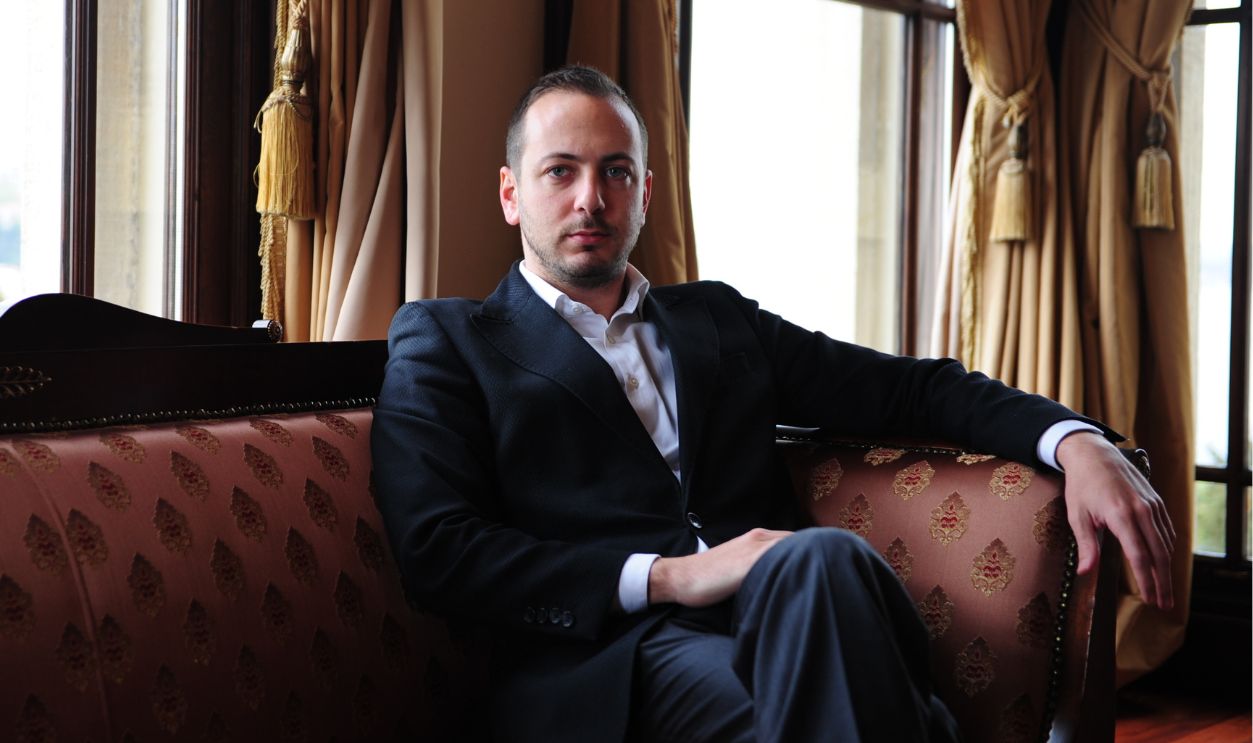Polished Oddities
You believe you know manners, until you’re handed the fourth fork and still aren’t sure what you’re eating. Certain habits feel natural to the upper class, but for everyone else, they’re kind of a puzzle.

Using Fine China For Everyday Meals
Casually sitting on the breakfast table every morning is $15,000 worth of fine china. In upper-class homes, expensive china isn't reserved for special occasions but used regularly. This idea stems from an abundance mentality. When you own multiple sets of fine china, using one becomes practical.
Having Live-In Household Staff
Household staff members have worked for wealthy folks for decades, living in quarters above townhouses or in separate buildings on estates. Unlike other families who hire occasional cleaning services, elite households tend to maintain full-time employees who become integral to daily operations.
Children Being Seen And Not Heard
The dinner party chatter stops abruptly when a young child enters the dining room. She curtseys politely, says "Good evening" to the adults, and quietly retreats upstairs. Such a Victorian-era principle still governs many rich households today, where youngsters learn early that adult spaces require respectful silence.
Children Being Seen And Not Heard (Cont.)
Traditional noble families maintain strict boundaries between the social spheres of adults and kids, viewing this as essential for character development. The practice teaches delayed gratification and social awareness, but middle-class parents often find it unnecessarily restrictive. Modern child psychology research shows mixed results about authoritarian parenting styles.
Never Discussing Money Directly
Old money people consider direct financial conversations vulgar and inappropriate for polite society. This cultural taboo runs so deep that privileged children often reach adulthood without knowing their family's exact net worth. The philosophy stems from British aristocratic traditions where discussing money was considered beneath one's station.
 PeopleImages.com - Yuri A, Shutterstock
PeopleImages.com - Yuri A, Shutterstock
Never Discussing Money Directly (Cont.)
Instead, upper-class families use coded language like "comfortable," "well-situated," or "financially secure" when financial topics arise. Middle-class individuals, who regularly discuss budgets, find this indirect communication style sometimes deceptive. Money conversations can also provoke envy, judgment, or division among friends and family.
Collecting Rare Books As Investments
A signed first edition of To Kill a Mockingbird sold for $25,000 in 2011, representing just one piece in many similar collectors' libraries. Affluent individuals look at rare books not as reading material, but as appreciable assets that combine cultural prestige with financial returns.
Handwritten Thank-You Notes For Everything
Stationers like Crane & Co and Smythson have supplied wealthy families with personalized stationery for generations, enabling the constant flow of handwritten correspondence. Every gift, dinner invitation, business favor, or social courtesy requires a formal written acknowledgment within 48 hours. Such notes follow specific formats with particular paper weights.
Owning Multiple Homes Seasonally
Seasonal migration patterns among the wealthy follow centuries-old traditions that dictate specific locations for different times of year. The Hamptons for summer, Aspen for winter skiing, Palm Beach for spring—these are more of seasonal residences than vacation destinations with a whole staff and furnishings.
Owning Multiple Homes Seasonally (Cont.)
Each home serves distinct social functions: the city residence for business, the country estate for entertaining, and the beach house for relaxation. It all originated with the European nobility. Apparently, the number of luxury homes sold in the US rose by 5.2% in the first half of 2024.
Rotating Seasonal Wardrobes With Storage Services
Professional wardrobe management companies charge $15,000–30,000 annually to rotate, clean, repair, and store clothing collections that change completely four times per year. Privileged individuals have separate wardrobes for different seasons, climates, and social calendars, requiring specialized storage facilities with climate control and pest prevention measures.
Avoiding Visible Designer Labels
True luxury lies in quality that speaks quietly rather than logos that shout loudly. Their fashion philosophy emphasizes understated elegance more than brand recognition, with the finest garments often bearing no visible labels whatsoever. This approach, known as "stealth wealth," allows insiders to recognize quality materials.
Avoiding Visible Designer Labels (Cont.)
Research from Boston Consulting Group shows that 67% of ultra-high-net-worth individuals prefer unlabeled luxury items. Iconic brands like Hermes and Brunello Cucinelli cater to this preference with subtle or hidden labels. Middle-class consumers generally rely on recognizable logos to signal quality and status.
Planning Vacations Years In Advance
In 2025, about 35% of luxury travel bookings were made more than 13 months in advance, reflecting a strong trend toward long-term vacation planning. These guys plan elaborate trips with military precision, coordinating multiple families, private jets, yacht charters, and exclusive access to locations closed to general tourism.
Wearing Custom-Made Clothing Only
Savile Row tailors maintain detailed measurements and fabric preferences for clients spanning multiple generations, creating garments that fit perfectly and last decades. Upper-class individuals rarely purchase ready-to-wear clothing; instead, they commission pieces from established craftsmen who understand their lifestyle requirements.
Wearing Custom-Made Clothing Only (Cont.)
A bespoke suit requires 60–80 hours of handwork and costs $5,000–$15,000, but rich clients view this as cost-effective given the garment's 20–30 year lifespan. The practice emphasizes quality over quantity, with smaller wardrobes of impeccably-made pieces rather than numerous trendy items.
Teaching Children Complex Table Manners
Formal dining instruction begins as early as age four, with children mastering the continental style of eating and proper bread plate placement. They also learn how to engage in appropriate, reserved table conversation by avoiding specific topics, waiting for cues, and never interrupting.
Maintaining Temperature-Controlled Wine Cellars
Humidity levels between 50% and 80% and temperatures precisely maintained at 55–58°F preserve wine collections worth millions of dollars in underground cellars explicitly made for long-term storage. These climate-controlled environments generally span thousands of square feet, housing vintages dating back decades that appreciate significantly over time.
Maintaining Temperature-Controlled Wine Cellars (Cont.)
The most expensive wine ever sold, a 1947 Cheval Blanc, fetched $304,375 at auction in 2010. Wealthy collectors view wine as both pleasure and investment, with some bottles appreciating 15–20% annually. Professional sommeliers manage these collections, tracking purchase dates, optimal drinking windows, and current market values.
Enrolling Children In Exclusive Clubs
Membership applications to exclusive country clubs, such as Augusta National or Pine Valley Golf Club, require sponsorship from multiple existing members and extensive background checks. It is said that high-society households submit their children's names for membership while they're still infants.
Enrolling Children In Exclusive Clubs (Cont.)
Annual dues at top-tier clubs range from $50,000–$200,000, with initiation fees reaching $500,000 or more. These institutions maintain strict dress codes, behavior standards, and member conduct requirements that reinforce class distinctions.
Following Strict Social Introduction Protocols
The order of introductions follows specific hierarchical rules where younger people are always presented to older individuals, and men are introduced to women unless huge age or status differences apply. Upper-class social gatherings operate under these unwritten protocols that determine conversation flow and seating arrangements.
Hosting Private Charity Fundraisers
A single charity gala held in a private residence can raise $2–5 million in one evening, with hosts leveraging their social networks to secure donations from attendees who feel obligated to contribute generously. These events require months of planning, professional event coordinators, and careful guest list curation.
Expecting Children To Master Multiple Languages
Fluency in three or more languages is considered basic education in such households, with kids beginning instruction as early as age three through native-speaking tutors and immersive summer programs. Private language tutors charge $75–$150 per hour for comprehensive, multilingual education.






























